Health
Former Grade III Teacher graduates with a PhD: NCDC approves her Study Intervention for Adolescent Care
Published
1 year agoon
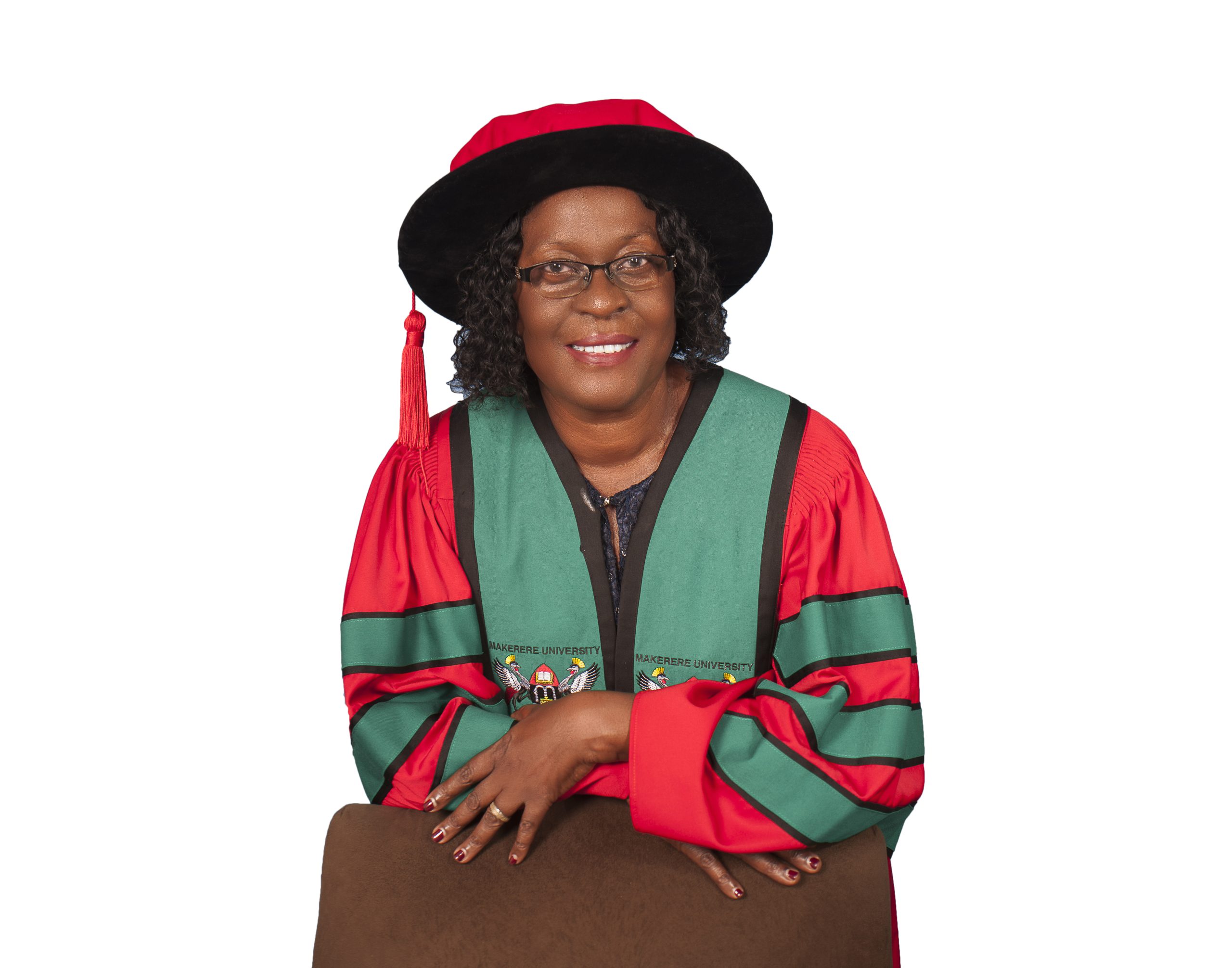
Sixty four-year-old Sarah Bunoti Nantono is a retired teacher and Lecturer of Psychology. She enrolled for a Ph.D. program at Makerere University School of Public Health (MakSPH) in 2013 with the goal of studying early adolescent reproductive health.
Having taught for more than thirty years, Dr. Sarah Bunoti Nantono had moved up the academic ladder from being a primary school teacher to a lecturer at Kyambogo University. She believed that earning a PhD would be her ultimate goal in life. While at Kyambogo University, the second largest of the now 13 public universities in Uganda, Dr. Sarah Bunoti devoted her professional life to training social scientists, teachers and teacher educators.
Eleven years later, Dr. Bunoti Sarah Nantono is one of the 46 females of the 132 PhD graduands in the #Mak74thGrad, which begins on Monday, January 29, 2024.
She successfully earns a Doctor of Philosophy ( PhD) in Public Health from Makerere University following her in-depth research titled; “Pubertal and Child Rights Awareness, Communication, and Child Protection against Sexual Abuse and Exploitation among 10–14-year-olds in Jinja Primary Schools: Opportunities, Challenges, and the Effectiveness of a School-Based Intervention.”
Dr. Sarah Bunoti is a seasoned lecturer with a proven track record in teacher training, social sciences, and psychology. Holding an MSc in Environment from Makerere University Institute of Environment, she also earned a Bachelor of Science in Zoology and Psychology from Makerere University in 1999, a Diploma in Teacher Education from ITEK in 1995, and a Grade III Primary School Teachers’ Certificate from the National Institute of Education. Beginning her career in 1981 as a primary school teacher, and later as a Teacher Trainer in the Ministry of Education in 1995, Sarah transitioned to Kyambogo University in 2000, where she currently serves as a part-time Lecturer, following her retirement. Sarah Bunoti Nantono is not only an educator but also an accomplished author, contributing to the development of the Child Rights Curriculum (CRED-PRO).
Dr. Sarah Bunoti’s PhD research examined how Jinja primary school children, aged 10 to 14, understood puberty and their rights related to sexual and reproductive health (SRH). The study looked at their knowledge sources, difficulties, and prospects for managing pubertal health effectively.
The 10-14 age group comprises 10% of the global population, with Uganda having a higher percentage at 16%. This period marks the onset of significant changes, known as the storm in Psychology, involving body transformations and social shifts.
According to Dr. Sarah Bunoti, timely support during these changes fosters a sense of achievement, but delays can lead to anxiety and unpreparedness. Uganda, aligning with international agreements, including the UN Convention on the Rights of the Child, works to uphold children’s sexual well-being through policies and partnerships.
Dr. Sarah Bunoti further notes in her research that the 10-14 age group in Uganda encounters puberty during primary school without appropriate information, support, protection, or preparation for the changes, leading to psychological challenges, sexual abuse, early marriages, unplanned pregnancies, and a rise in school dropouts.
![Dr. Sarah Bunoti's PhD Defense Panel [Professor Stella Neema, Associate Professor Joseph Ssenyonga, Dr. Siu E. Godfrey, Dr. Beyeza-Kashesya Jolly and supervisors Associate Professor Lynn Atuyambe, Prof. Nazarius Mbona Tumwesigye alongside the session chairperson Prof. Garimoi Orach] determining the verdict before she was declared to have passed her defense. Davies Lecture Theatre, College of Health Sciences, Makerere University, Kampala Uganda, East Africa.](https://news.mak.ac.ug/wp-content/uploads/2024/01/Makerere-CHS-SPH-74th-Graduation-Dr-Sarah-Bunoti-Jan2024-PhD-Defense-Panel-1024x683.jpg)
Busoga region, where the study was conducted faces particularly high rates of teenage pregnancies (7%) and school dropouts (91%). Children hold misconceptions driven by myths about puberty, emphasizing the lack of systematic guidance. Current Adolescent Sexual Reproductive Health programs focus on older children in secondary schools, neglecting the needs of those under 15.
Traditional sources, like family discussions, have diminished, placing the responsibility on schools, which often lack the necessary resources and teacher training. As a result, many 10-14-year olds are ill-prepared for changes and lack protection against sexual abuse, highlighting the necessity for evidence-based school interventions to address this information gap.
“Previously in our African traditional setting, the Aunties, Uncles and grandparents talked about puberty and prepared children for adulthood however with the breakdown of African traditional settings, schools are expected to do the role of talking to children about puberty.
Unfortunately, schools often look at puberty as an issue that is concerned with the family and expect the family to do that but also one possible problem is that the teachers themselves don’t know what to do when they are preparing these children for that,” observes Dr. Sarah Bunoti.
Unfortunately, some stakeholders use threatening language, warnings, and punishments, contributing to risk behaviors, including sexual abuse, mood swings, and trauma among children.
“We wanted to find out what these children know about puberty, challenges they face and the support they get. We also wanted to find out from key duty bearers, these are parents and teachers, what kind of support do they give to the children and to what extent do they fulfill their obligations to protect the children against sexual abuse,” said Dr. Sarah Bunoti.
The study covered 16 primary schools purposefully selected for their diverse characteristics, including boarding status, religious affiliations, gender specifications, and geographical locations. The investigators also engaged with government officials to understand their stance on current sexual and reproductive health issues among young adolescents.
The study exposed deficiencies in children’s understanding of puberty and child rights, along with teachers’ inadequate knowledge and skills in teaching puberty.
Findings for instance revealed that kids—particularly boys—don’t often get the chance to talk candidly about puberty with adults. In all focus group conversations, the study gave boys and girls a forum to openly address their experiences, difficulties, and rights related to sexual and reproductive health. This emphasizes how important it is for all people to become widely sensitive to the issues that face kids. Stepmothers were found not to communicate about puberty because of generalization and others.
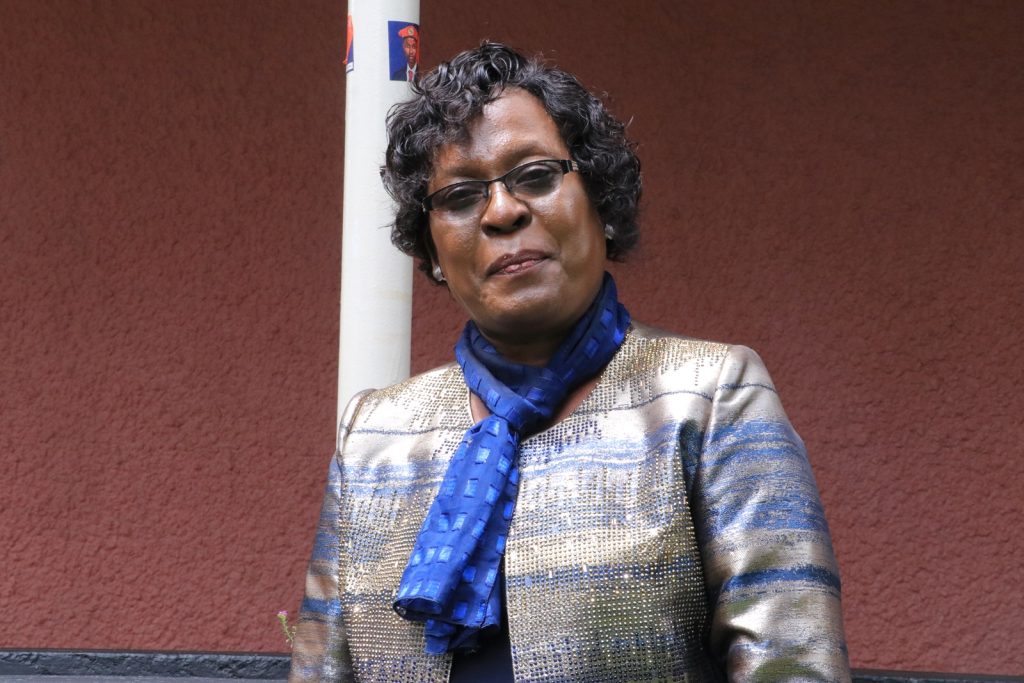
“Surprisingly, discussions on pubertal challenges elicited more extensive responses from both boys and girls compared to other topics. Boys, although engaging in perceived anti-social behavior, demonstrated a level of conscience. It became evident that children, despite being sexually and biologically mature, require guidance on navigating the impact of hormones on their sexual feelings. The blame for communication gaps often falls on parents, who may be absent due to work, divorce, or being orphaned,” says Dr. Bunoti.
Subsequently, she developed, applied, and assessed two intervention books; A children’s Resource book and a Teachers’ guide. The Randomized Control Trial demonstrated improved pubertal knowledge among children and enhanced teaching capabilities in teachers, affirming the intervention’s effectiveness. These intervention books were approved by the National Curriculum Development Centre (NCDC) and approved for teaching pubertal health and safety in primary schools nationwide.
Dr. Bunoti has recommended empowering and involving young communicators to convey Sexual and Reproductive Health and Rights (SRHR) information to 10-14-year-olds, working collaboratively with parents and teachers, a strategy she believes will narrow the generation gap and enhance effective communication. Additionally, she calls for increased awareness and participation of male parents and teachers in SRH communication and child protection.
“Parents and adults should supplement school-based SRHR education by instilling age-appropriate individual, family, and community values and skills rooted in social, cultural, and religious contexts. Provide specialized training for Senior Women Teachers and Male Teachers, and reduce their teaching load to ensure dedicated attention to this critical aspect of education,” Dr. Bunoti expertly says.
Her study, funded by Sida and supervised by Dr. Lynn Atuyambe and Prof. Nazarius Mbona Tumwesigye, successfully attained this recognition.
During her PhD defense, Associate Professor Lynn Atuyambe remarked, “It was a very enjoyable defense. You truly and successfully defended your PhD—now, you own your PhD.”
“I want to thank most especially your family, they’ve been part of this journey I am not guessing, I know they’ve been and am excited to see them and I like the support they have offered to mum. The highest level of education in the world is a PhD, you can do no more than that. You have reached at the saddle of your life in academia, congratulations and I wish you good luck,” said Dr. Lynn Atuyambe.
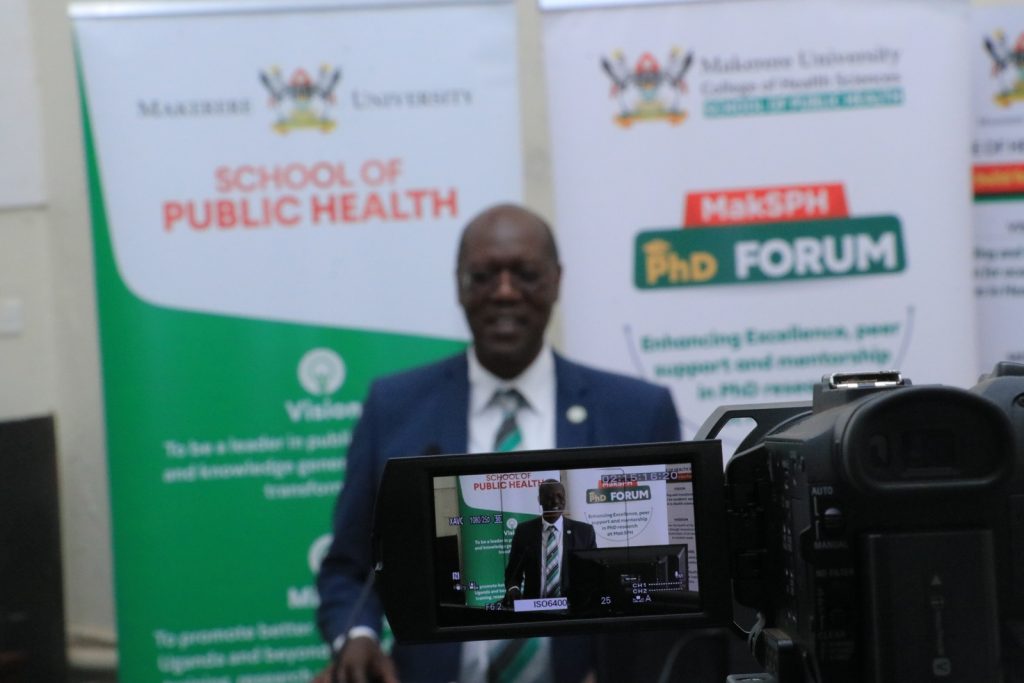
How her PhD Journey started
About a decade ago, SIDA had been consistently supporting Makerere University. However, they decided to extend their support to other public universities. When the opportunity arose, she seized it.
“I have a habit of greeting, and my children often question why I greet so much. Sometimes, it turns out to be quite beneficial. One day, I walked into my Dean Dr. J Katigo – Kaheeru’s office and greeted, asking how he was. He said, ‘Sarah, I am glad you’ve come, read this but I said Doctor I am not ready for this, but he said, ‘Sarah, you can’t give any more excuses, this is a God given opportunity, they want a concept for the SIDA Scholarships, go ahead and write a concept.’ I later met Professor Mary N Okwakol, my undergraduate Lecturer of Zoology, and Professor Albert Lutalo Bbosa, the former Vice Chancellor of Kyambogo University, who too reassured me of my potential to attain a PhD. Out of 26 submissions from Kyambogo University, only three concepts were selected, and fortunately, mine was one of them,” Dr. Sarah Bunoti recalls.
Once her concept was ready, Dr. Bunoti came to Makerere University, but her research topic was broad. Unfortunately, her background did not align with the faculties that typically received sponsorship from SIDA. Zoology, Psychology, Education, and Environmental Studies were her strengths, but none fell within the supported areas.
Feeling disconsolate, she sought guidance from the then Director of Research and Graduate Studies at Makerere University, Professor Elly Katunguka. “He said, ‘why should you really struggle looking for a home, go and try School of Public Health. With your background, you’ll find a home,” she recalls.
Acting on his advice, Dr. Sarah Bunoti visited the School of Public Health one morning. However, the Dean, Prof. William Bazeyo, then, was away on leave; “I spoke with Assoc. Prof. Fred Wabwire-Mangen, the Acting Dean at the time. I explained my situation, highlighting my expertise in teaching, psychology, and environmental studies. He encouraged me to submit my concept, assuring me that these areas were valued in public health. This led to provisional admission, and I began refining my proposal with their guidance.”
As she exited Dr. Mangeni’s office, he promptly contacted Professor Anne Katahoire, who was by then the Director of Makerere University Child Health and Development Centre and Prof. Atuyambe, who was in Nairobi for a conference and told them; “We have a prospective student here, are you willing to take her up and without hesitation, Prof. Anne said yes and Prof. Lynn said, ‘I am in Nairobi but when I come back, I want to see that student,” Sarah recollects.
Subsequently, Prof. Mangeni reached out to Prof. Nazarius Mbona Tumwesigye upon recognizing the importance of the statistics component, he promptly invited her to discuss further details at the school. “In a short span, I found myself with a dedicated team of supervisors, a supportive Doctoral Committee chaired by Prof. Christopher Garimoi Orach with Prof Joseph Oonyu (RIP) and Dr. Christine K. Nalwadda, and a scholarly home in the Department of Community and Behavioral Sciences at the Makerere University School of Public Health,” Sarah Bunoti says.
Dr. Sarah Bunoti expresses gratitude to the MakSPH PhD Forum, the MakSPH family, the funder and her mother institution -Kyambogo University for the immeasurable support.
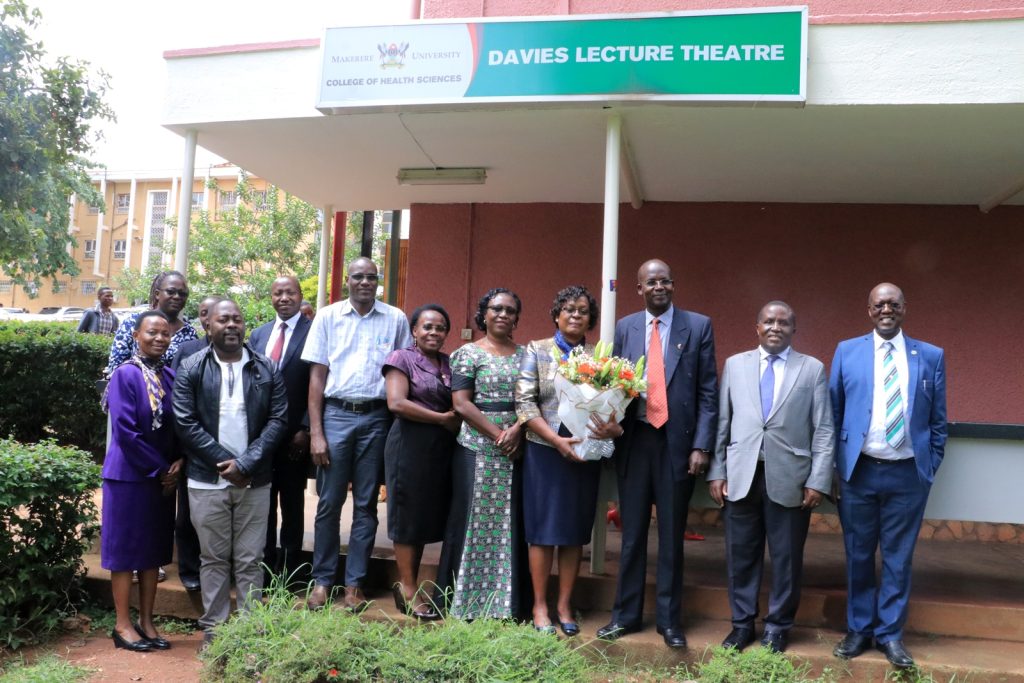
Dr. Sarah Bunoti expresses gratitude to the MakSPH PhD Forum, the MakSPH family, the funder and her mother institution -Kyambogo University for the inestimable support. She is also grateful to head teachers, teachers, children, and parents from her 16 project schools; Jinja City and District Education, Health and Community Development officers as well as the Family and Child Protection Unit of the Uganda Police Force and others for the information and support rendered to her.
“I can’t quantify the support I received from MakSPH, from PhD forum, from my supervisors you all did a good job to support me in this. In addition, SIDA did a good job because with our teaching salary, paying for my PhD would have been a problem but they paid all my tuition even when the scholarship was ending they said Sarah, we are paying for two years at ago and paid for the field’s activities,” she recalls.
She is equally grateful to everyone who provided her and her research team with useful information; Kyambogo University for assigning a teaching assistant to help her focus and her husband, Dr. Bunoti, who has promised to support her dream.
“I want to thank my family, my sister Mrs. Rebecca Lucy and her husband Eng. Dr James Muwuluke, my children. They have been there for me, my husband, Dr. Bunoti met me when I was a primary school teacher and he was a Doctor teach and told me, Sarah, I will support you until you are tired of reading and has kept his word, there are few empowered men who will want a woman to come up and get the title they hold,” she said.
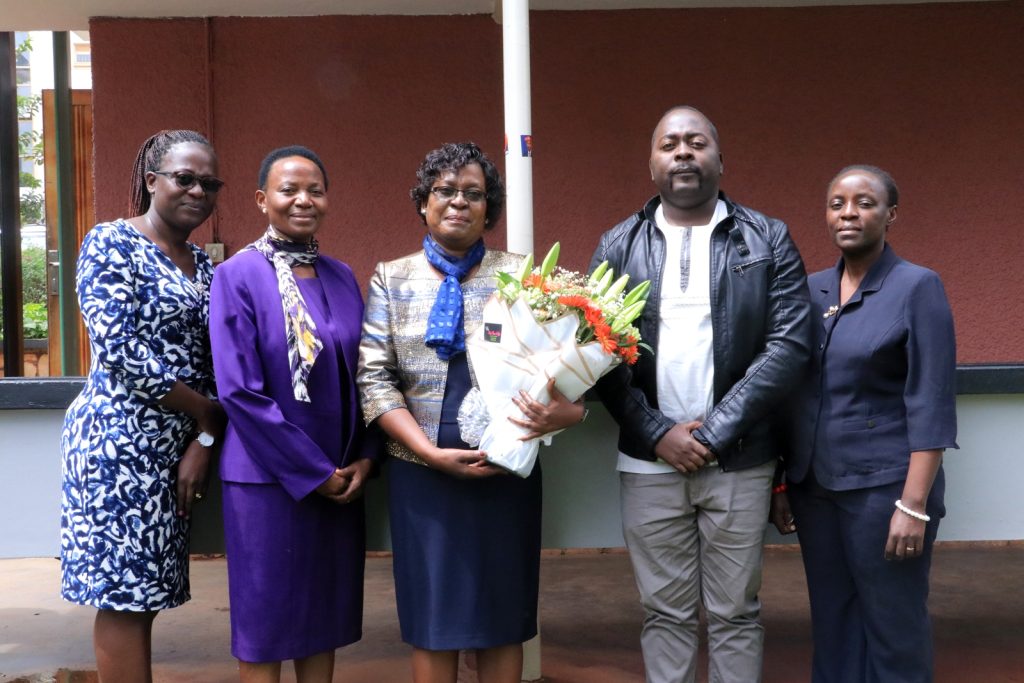
“Given what I have gone through, am so excited about this achievement. My family is so excited about this. My husband is extremely excited. They have written short paragraphs about me about my resilience. I had decided not to hold any celebration but my sister and her husband says this could not pass since it is no mean achievement,” she says.
Dr. Godfrey Siu Etyang, her Ph.D. overseer, has invited her to collaborate on a parenting project at the Child Health and Development Center, College of Health Sciences, Makerere University. Over the past month, she has been actively contributing to the development of a comprehensive parenting curriculum for the unit.
Dr. Bunoti anticipates scaling up the approved intervention, particularly to additional primary schools in the Busoga region and beyond and has already began talks with Ministry of Education and Sports to support children’s understanding of puberty, a sine qua non for education and parenting.
Unexpected difficulties affected Dr. Sarah Bunoti Nantono’s journey to earning her Ph.D., resulting in longer than the expected four to six years. Midway through her studies, she developed insomnia, which was an unexpected health problem. In 2020 when it appeared that she would soon graduate, the Doctoral Committee insisted that she must publish her work, and was reluctant to accept a monograph, one of the options for one to graduate with a PhD at Makerere University. Further delays were due to lengthy processes to have her manuscripts published and clearances through the Institutional Review Board (IRB). Other than these challenges, Dr. Nantono also had to repeat the entire data collection process and deal with the untimely death of Assoc. Prof. Joseph Oonyu, a key member of her doctorate committee, in October 2020. Despite these challenges, Dr. Nantono feels proud to have completed her doctorate, demonstrating her incredible endurance in the face of adversity.
Congratulations Sarah!
You may like
-


Re-advert: Admission to Undergraduate Programmes 2025/2026
-
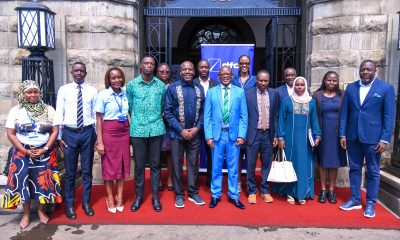

Makerere University, DFCU Bank Sign MoU to Advance Innovation, Student Leadership and Research
-


Press Release: Mak & DFCU Partner to Enhance Higher Education, Research & Student Support
-


CARTA Fellow Dr. Oporia Appointed to WHO Global Alliance for Drowning Prevention
-
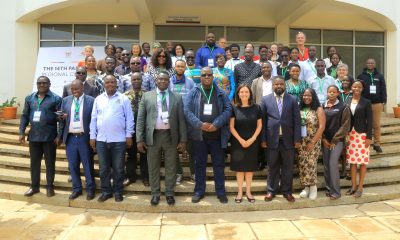

Harmonizing Africa’s Future through Musical Arts Education
-
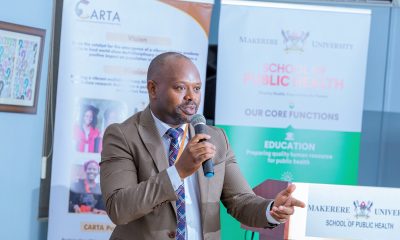

CARTA Focal Person Dr. Isunju Appointed to MakPress Editorial Board
Health
Call for Abstracts: Digital Health Africa 2025
Published
1 week agoon
July 2, 2025By
Mak Editor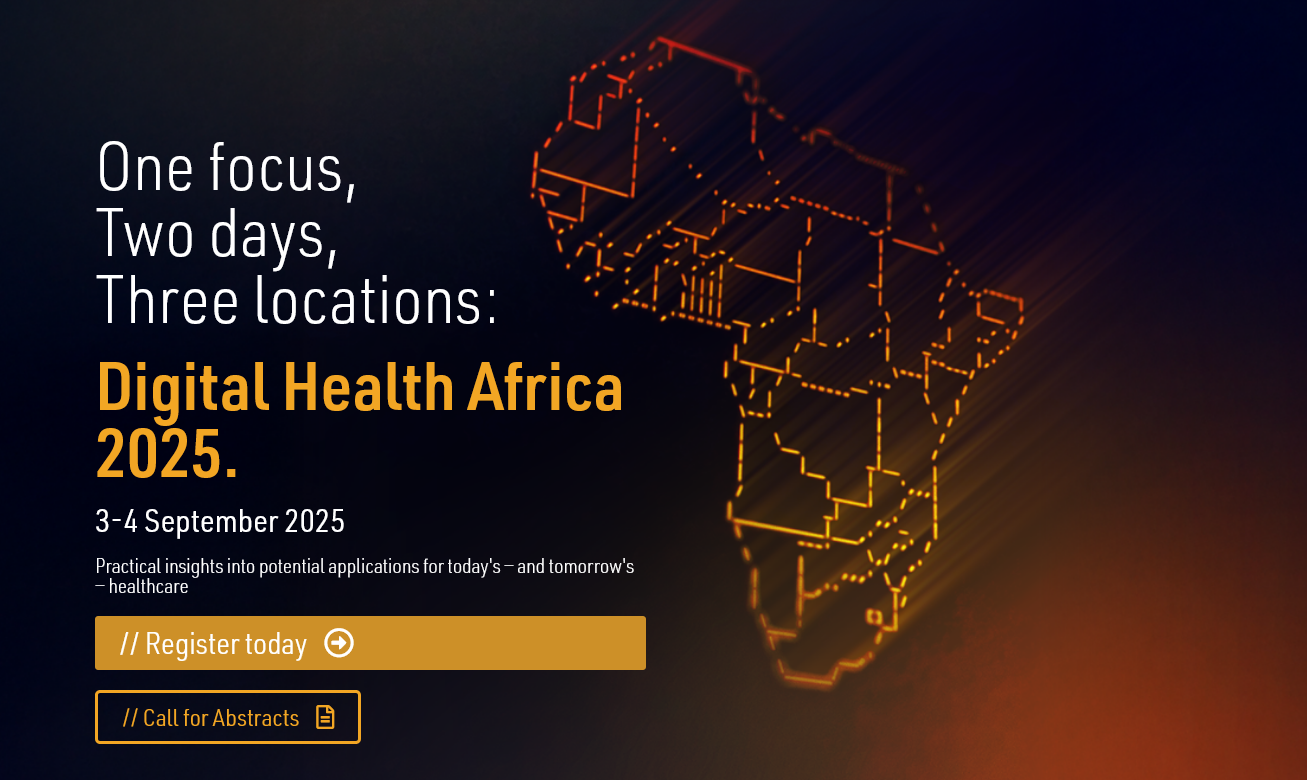
The Digital Health Africa 2025 Conference will provide practical insights in the potential applications of digital technologies, using maternal and child health, as important examples. Topics of interest will include patient registries, safety signals, vaccine use in pregnancy/breastfeeding, labelling of vaccines in pregnancy, emerging infections and antibiotic resistance, telemedicine, pharmacometric modelling, precision medicine, medicines regulation, ethical and legal aspects, and capability enhancement.
Applying an integrated multi-site face-to-face and remote format, this hybrid Conference will use digital tools to allow delegates and speakers from three different regions, South Africa, Uganda and Germany, as well as fully virtual participants to engage with one another. This will offer a nexus for collaboration and networking to promote partnerships among local and international stakeholders as well as capacity building for young scientists. Delegates will have the opportunity to engage with experts from industry, academia, healthcare providers, government and regulatory agencies as well as patient representatives to learn from one another and to gain valuable insights into the latest trends and best practices in digital health.
Abstracts should fit into one of these categories:
- Maternal and Child Health (MCH) & Digital Innovation
- Infectious Diseases & Antimicrobial Resistance (AMR)
- Digital Health Systems & Scaling
- Governance, Data Management & Interoperability
- Artificial Intelligence in Health & Research
- Pharmacometrics & Digital Tools
- Case Studies & Lessons Learned
- Cross-cutting & Strategic Perspectives
Submission deadline: 31st July 2025.
Accepted abstracts will be presented as interactive posters:
- a physical poster presentation at one of the conference sites
- an e-poster (digital version of your physical poster for sharing online)
- a 3-minute recorded presentation to accompany the poster.
Presenters with accepted posters will be offered complementary conference registration.
Submit your poster abstract here: https://forms.gle/aXYHeZSwX2EhEUas5
Health
Emorimor Calls for Makerere to Upgrade Parenting Course
Published
1 week agoon
June 30, 2025By
Zaam Ssali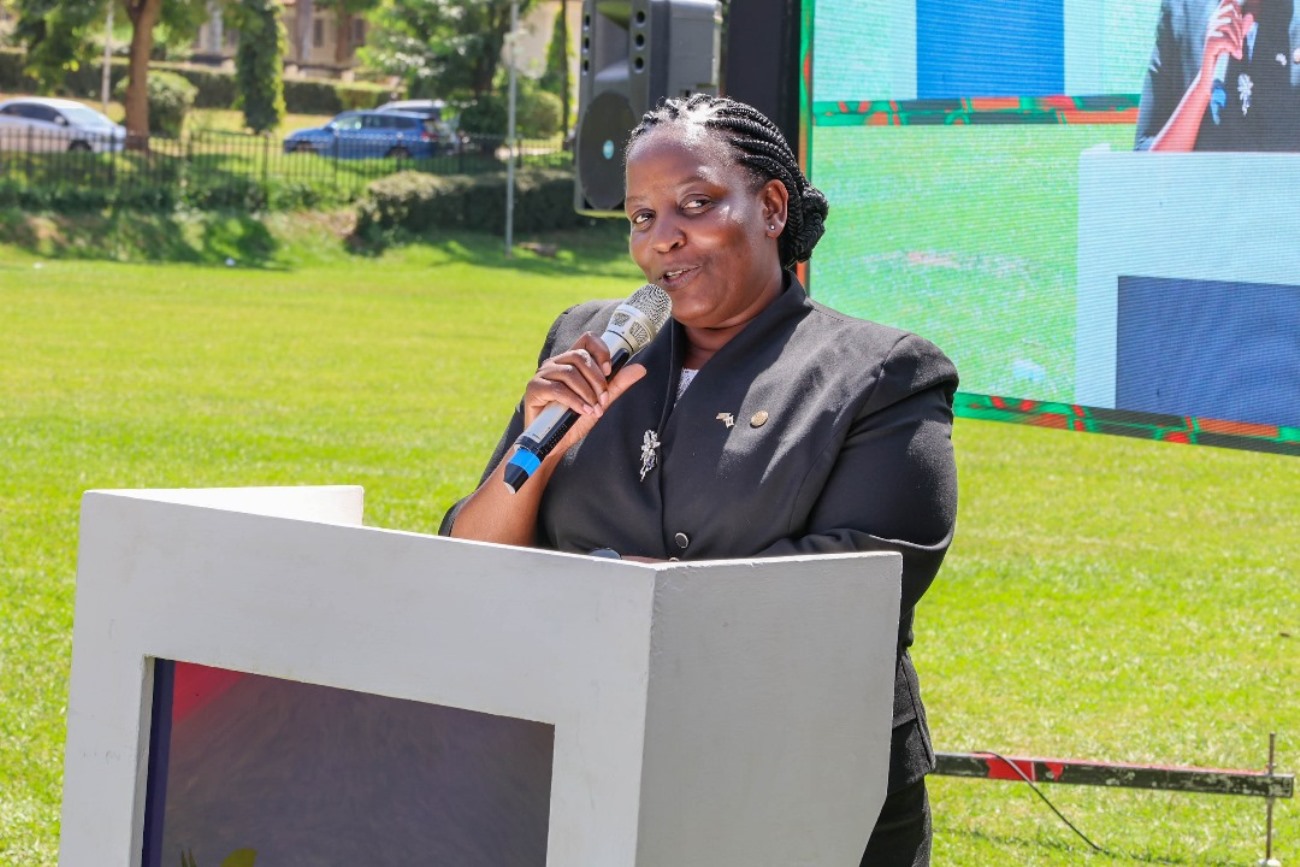
The Iteso Cultural Leader, His Highness Emorimor Papa Paul Sande Emolot, has called on Makerere University to elevate the Science of Designing, Adaptation, and Implementation of Evidence-Based Parenting Interventions course into a fully-fledged programme. This, he argued, would strengthen the capacity of practitioners implementing parenting interventions across Uganda.
Speaking at a graduation ceremony held on 11th June 2025 at Makerere University where 35 practitioners completed the 12-week course, Emorimor Papa Emolot emphasized the transformative power of effective parenting. He urged aspiring parents and advocates of the Parenting for Respectability model to enroll in the course.
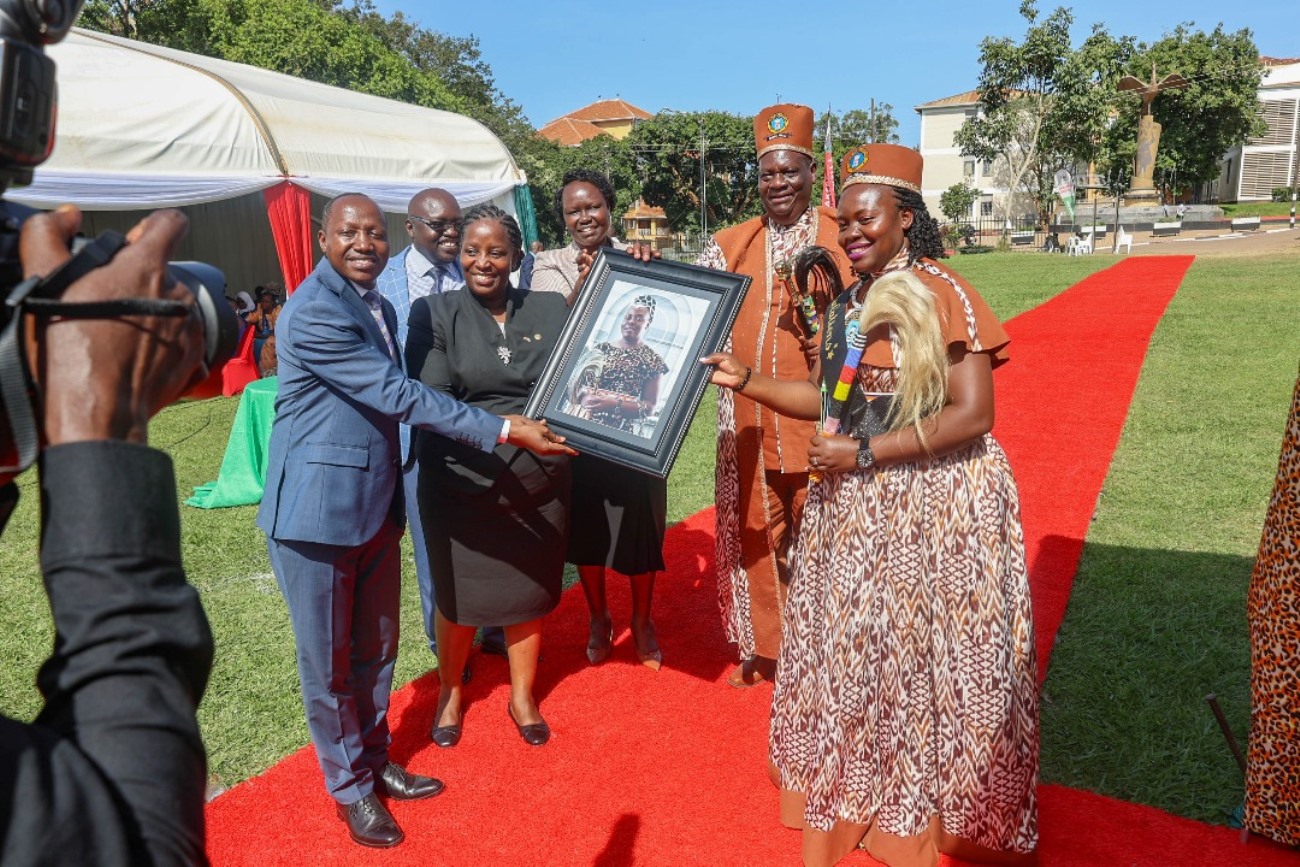
Citing the impact in his own sub-county and village, the cultural leader revealed that over 800 families had already benefited from the programme.
“We now see peace and love in homes where there was once conflict. Without good parenting, you risk raising animals instead of children,” he passionately stated.
He praised the course for equipping practitioners, policymakers, and researchers with the skills needed to design culturally sensitive, evidence-based parenting interventions tailored to Uganda’s context. Among the notable graduates was Her Royal Majesty Juliet Among Emolot Atomeileng Akaliat Toto, who reaffirmed her commitment to advancing family-strengthening initiatives using the skills and knowledge acquired.
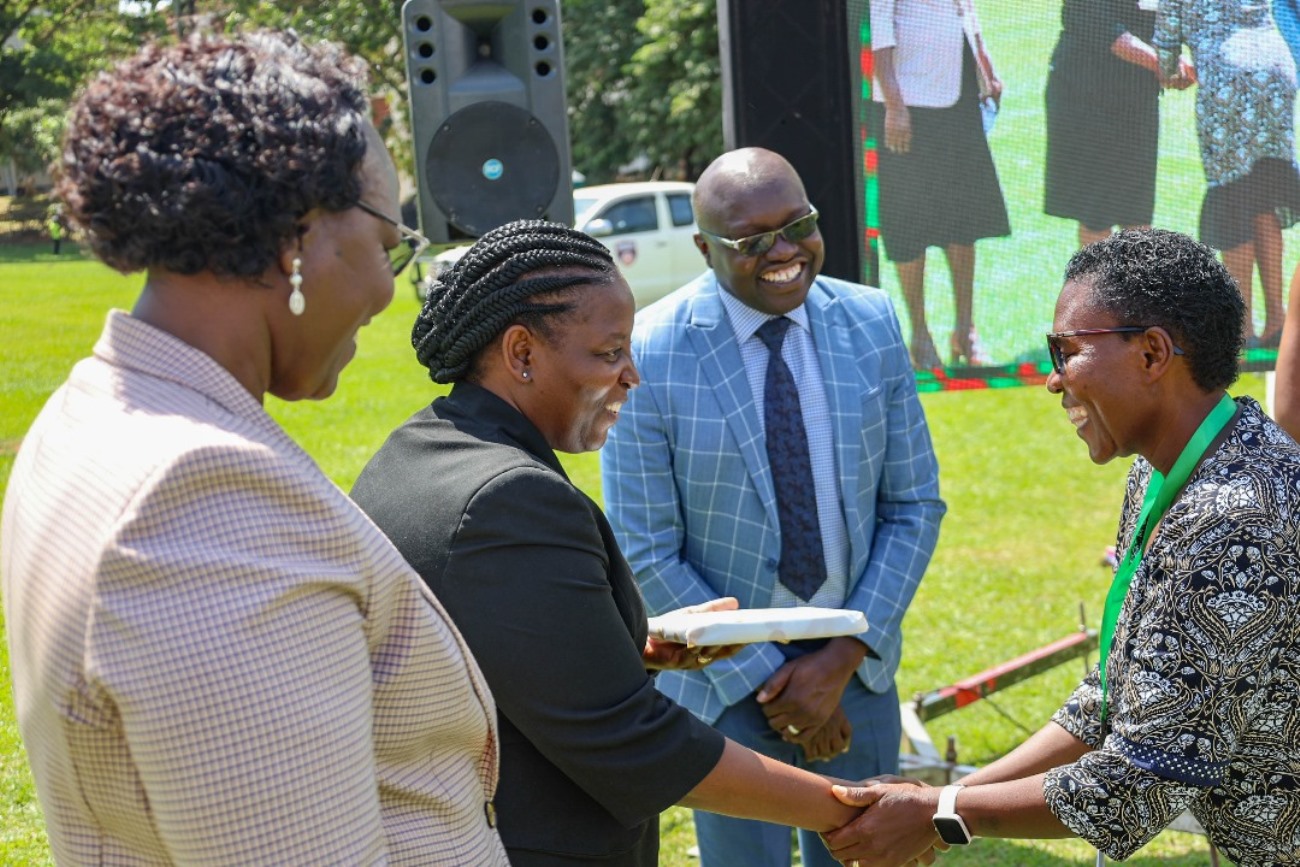
Dr. Godfrey Siu, Senior Lecturer and Course Leader at Makerere University, described the course as a timely intervention. During this remarks, Dr. Siu described the event as a significant milestone in advancing the field of evidence based parenting intervention and family strengthening in Uganda.
“This course is meant to empower you as practitioners, policy makers and all those involved in development and implementation of parenting work. It provides both theoretical knowledge and practical tools essential for developing high quality interventions”, Dr. Siu noted. He urged the pioneer group to carry forward the expertise as champions of designing, adaptation and implementation of evidence parenting interventions.
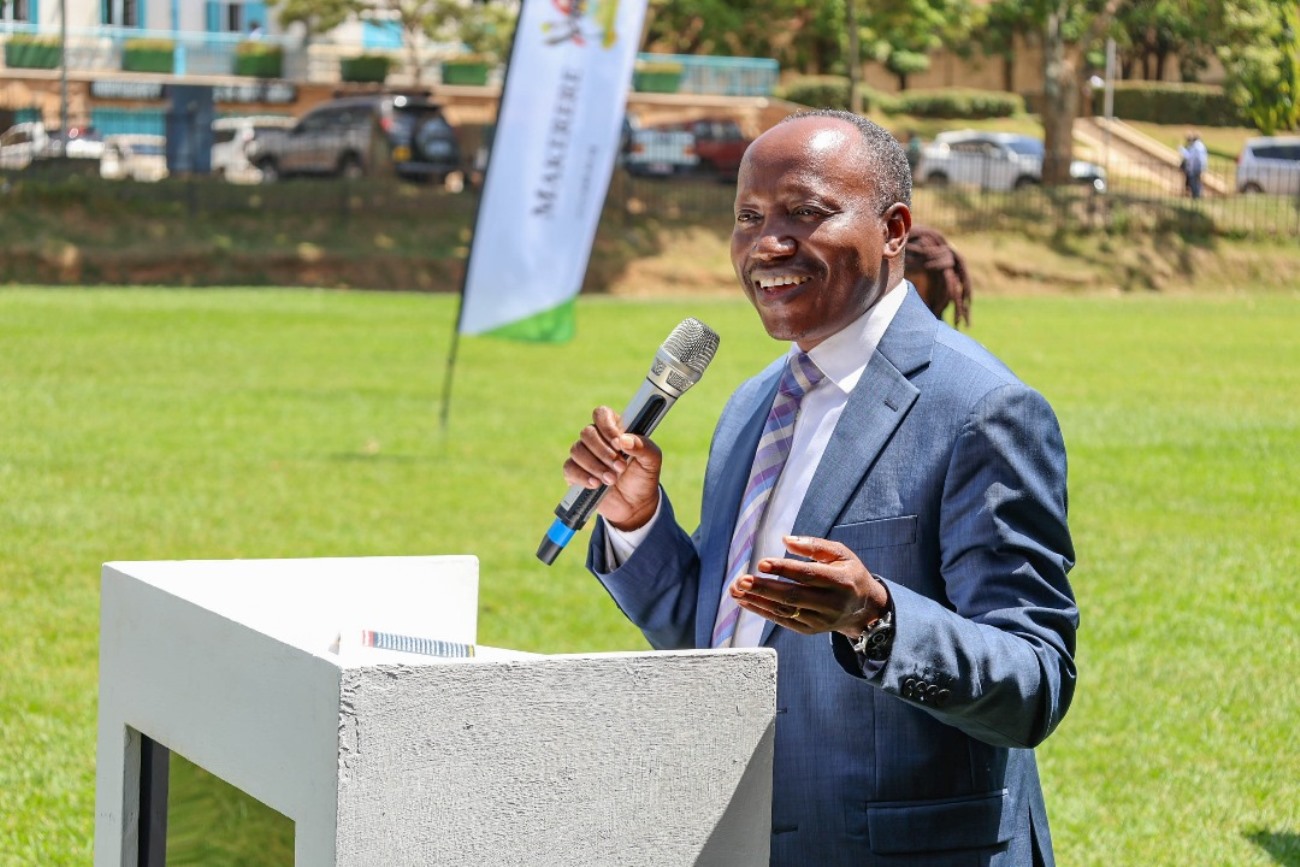
Representing the Permanent Secretary of the Ministry of Gender, Labour and Social Development, Dr. Aggrey David Kibenge, Juliana Naumo, Commissioner for Culture and Family Affairs, said the course supports the government’s agenda to address negative social outcomes affecting families.
“By grounding parenting in research, harmonizing policy with practice, and advocating for equity, we will ensure no family is left behind,” she said. “Cross-sectoral collaboration is key to unlocking transformative change.”
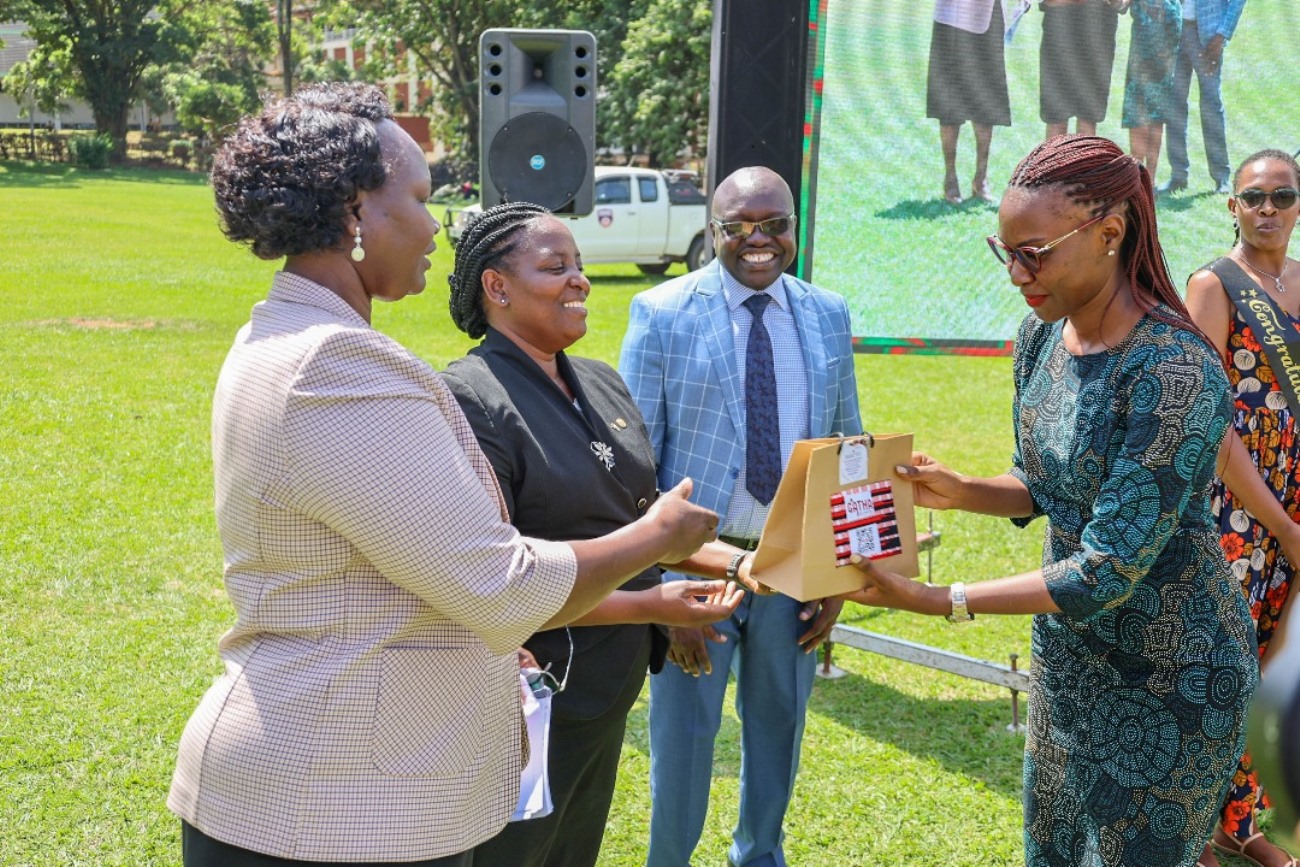
Ms. Naumo highlighted the government’s commitment—both technical and financial—to support outstanding student projects from the course. She stressed the importance of equipping professionals with the skills to bridge gaps between research and practice for consistent, high-quality parenting support across Uganda. While delivering the Vice chancellors speech by Dr. Helen Nambalirwa, Principal of the CHUSS, Prof. Barnabas Nawangwe commended the graduates as a beacon of hope.
“At a time when parenting faces challenges like digital distractions, changing societal norms, and a rising mental health crisis, Makerere reaffirms its support for interventions that drive the societal transformation we desire,” Nawangwe stated.
Prof. Richard Idro, Deputy Principal of the College of Health Sciences, acknowledged the growing parenting challenges in Uganda and the region, adding that the course was a major step towards standardizing parenting interventions nationwide.

He applauded the Child Health and Development Centre (CHDC) for leading this paramount and critical initiative.
Mr. Hosea Katende, Course Administrator at CHDC, emphasized the importance of integrating systematic methods, ethical principles, robust evidence, and collaboration to create lasting impact in parenting.
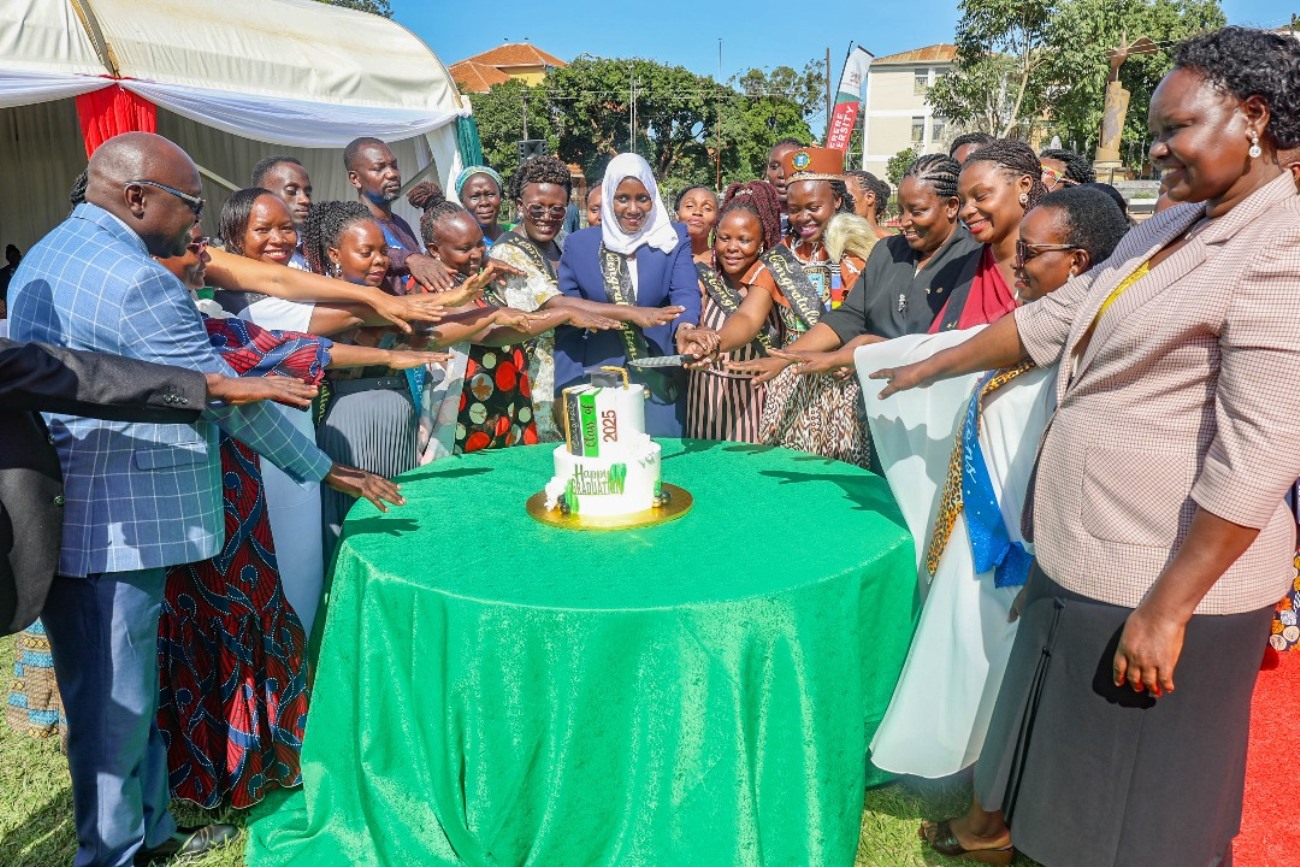
Dr. Aggrey Dhabangi, Lecturer at CHDC, representing Dr. Herbert Muyinda, Director of CHDC, acknowledged the contributions of partners such as the ELMA Foundation and Echidna Giving for their financial and capacity-building support. He also appreciated the Ministry of Gender, Labour and Social Development, among other stakeholders, for their technical guidance in the programme’s successful implementation.
Dr. Dhabangi extended gratitude to cultural institutions, especially the Kingdom of Teso, and acknowledged growing collaborations with other cultural institutions such as the Kingdom of Acholi, in the shared mission of building strong families as the foundation of Uganda’s future.
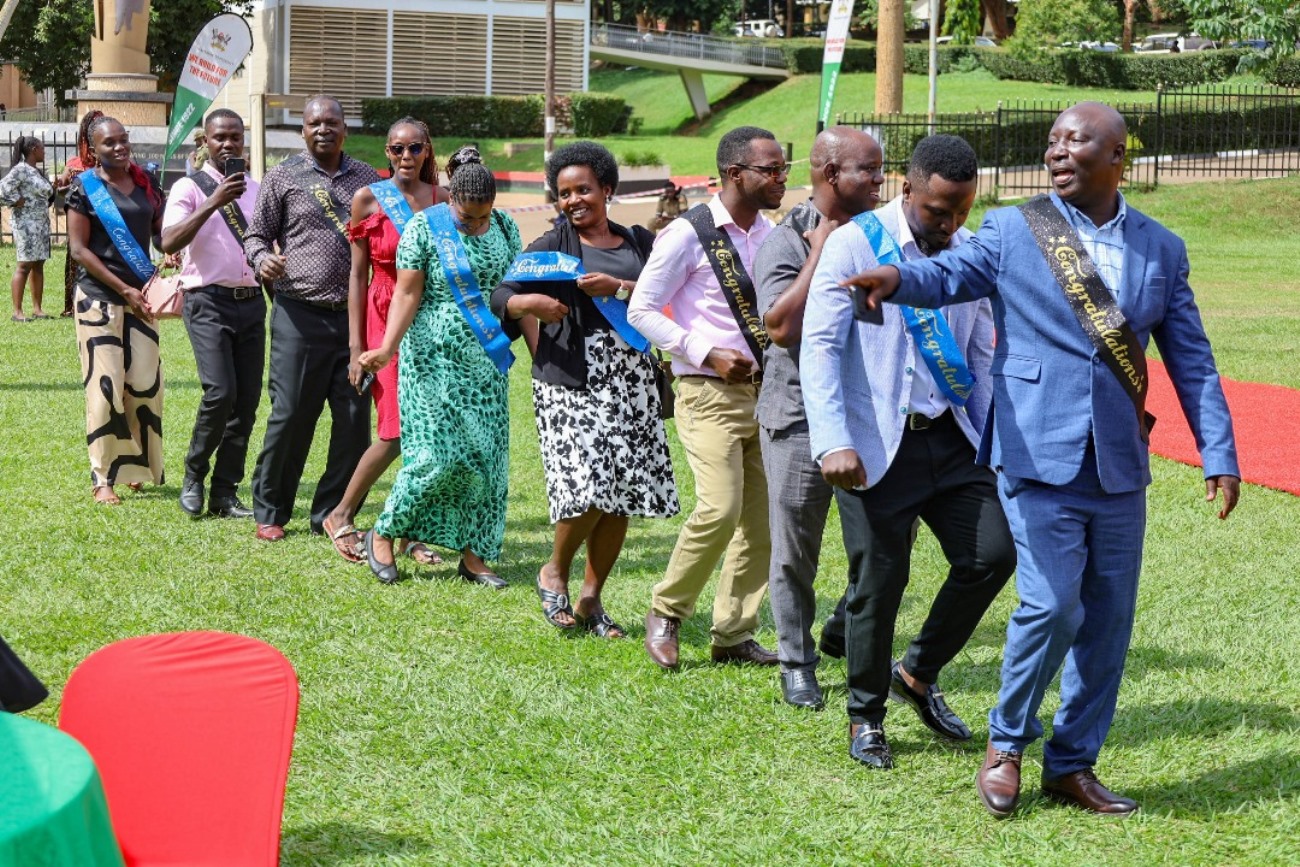
He extended his heartfelt gratitude to cultural institutions, especially the Kingdom of Teso, and others kingdoms such as the Kingdom of Acholi, in building Uganda’s future through creating strong families. Nuruh Mbalyowere, a Rehabilitation and Reintegration Officer with the Uganda Prisons Service, was honored for developing the best parenting intervention titled “Parenting Behind Prison Bars.” She expressed her intention to apply the knowledge gained both at home and in her workplace.
Health
MakSPH, DJC Launch Short Course on Health Communication
Published
3 weeks agoon
June 20, 2025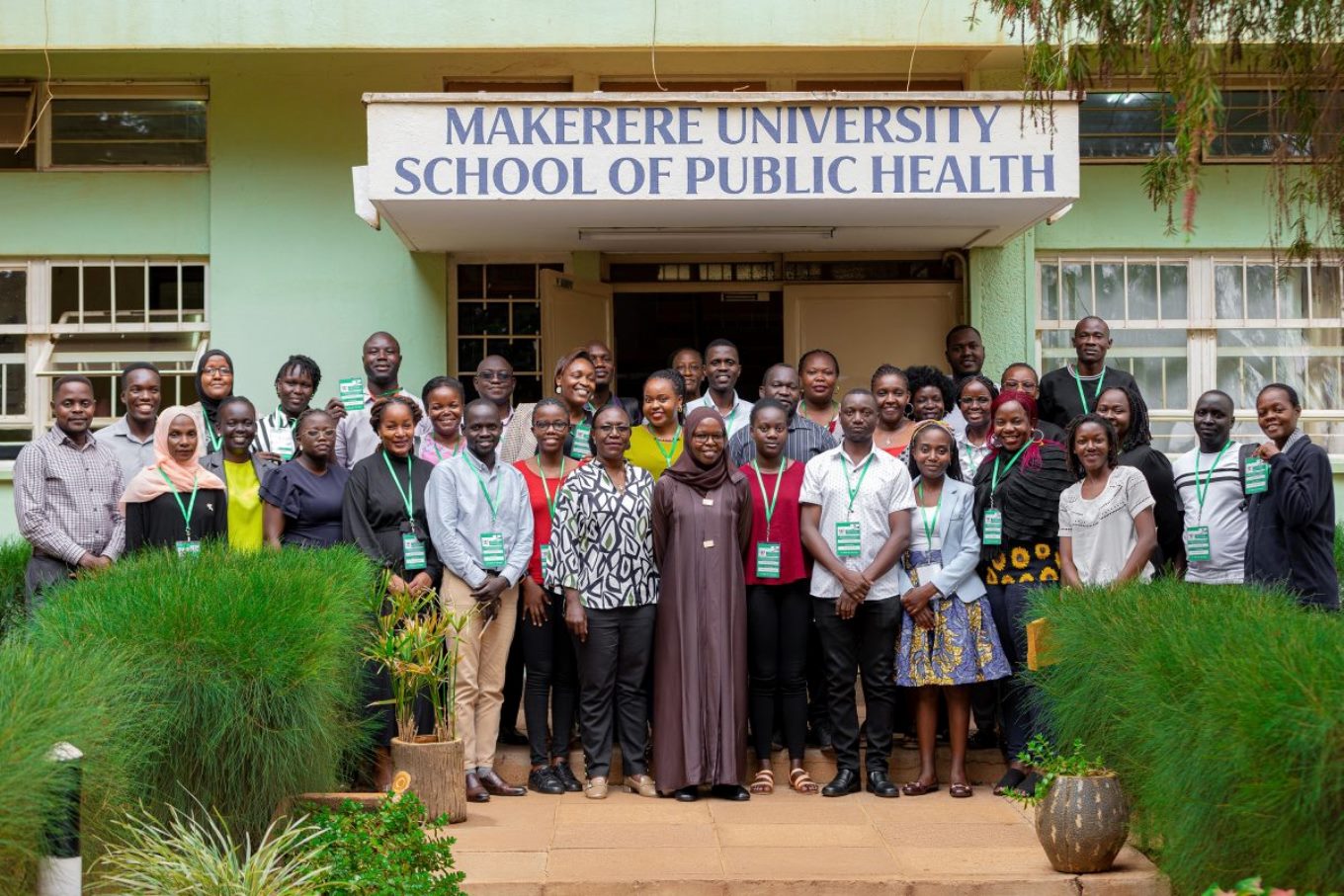
By Okeya John and Primrose Nabankema
The intensive one-month course, running for the first time from June 5 to July 24, 2025, is jointly offered by Makerere University School of Public Health (MakSPH)’s Department of Community Health and Behavioural Sciences (CHBS) and the Department of Journalism and Communication (DJC) at the School of Languages, Literature, and Communication (SLLC), co-designed in 2024 with support from the Rockefeller Foundation through Amref Health Africa.
It seeks to equip healthcare providers at the community level, public health and environmental health practitioners, communication specialists, health educators, community development officers, social scientists, and policy makers, among others, with strategic communication skills to improve public health messaging, strengthen community engagement, and support evidence-based interventions, ultimately empowering participants to effectively engage communities and improve population health outcomes across Uganda and the region.
Launching the course, the heads of the Department of Journalism and Communication and the Department of Community Health and Behavioural Sciences noted that participants who complete the short course will gain practical tools to influence behaviour change, build trust, and deliver timely, accurate, and relevant health information to the communities they serve. The first cohort attracted more than 60 applicants, with 36 reporting for the opening in-person session on June 5, 2025, at MakSPH in Mulago. Between now and July, participants will undergo a hands-on, multidisciplinary learning experience within the Certificate in Health Communication and Community Engagement program, which combines theory and practice.
Among the participants in the first cohort of the certificate course, designed as a pilot for the anticipated Master of Health Promotion and Communication to be jointly offered by the two departments at Makerere University, is Ms. Maureen Kisaakye, a medical laboratory technologist specialising in microbiology and antimicrobial resistance (AMR), and currently pursuing a Master’s in Immunology and Clinical Microbiology at Makerere. She is driven by a passion to help reverse the rising tide of AMR, a growing global health threat where drugs that once worked are no longer effective. Kisaakye is particularly concerned about common infections, like urinary tract infections, becoming increasingly resistant and harder to treat.
“I enrolled in this course because I’m an advocate against antimicrobial resistance, and it came at a time when I needed to deepen my knowledge on how to implement our projects more effectively and engage with communities. The experience has broadened my understanding of AMR and its impact on society, and strengthened my passion for community-driven health initiatives and advocacy,” Kisaakye said, explaining why she enrolled for the short course.
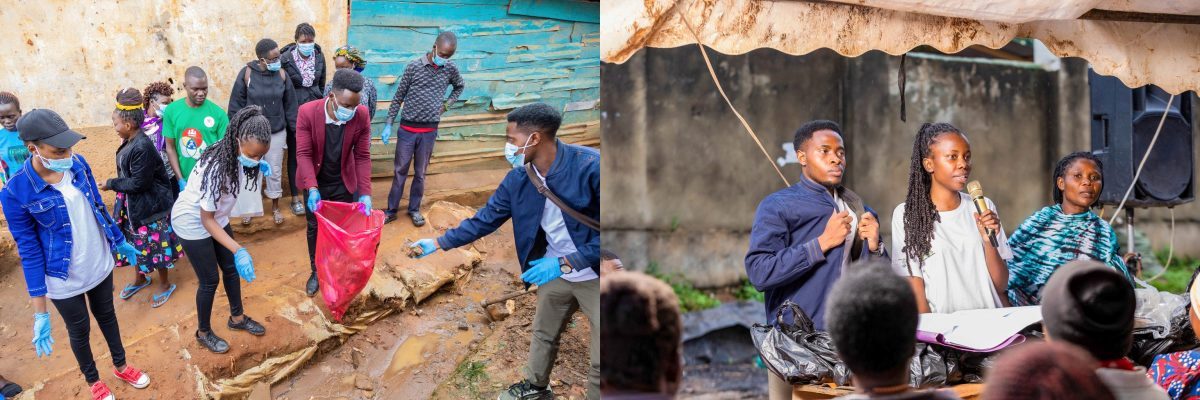
Kisaakye’s work in antimicrobial resistance extends beyond the lab. Having earned her degree in medical laboratory science from Mbarara University of Science and Technology, she founded Impala Tech Research in 2024 to drive impact and save lives. She has led grassroots AMR campaigns that integrate antimicrobial stewardship with water, sanitation, and hygiene (WASH) education in underserved urban communities, including the informal settlements in Kampala. She also has since designed peer-led initiatives that empower university students as AMR Champions, building a network of informed youth advocates. Kisaakye believes the health communication course will sharpen her ability to design and deliver impactful, community-centred interventions in response to the growing threat of drug resistance.
“The department collaborates with many partners within and beyond the University, including the School of Public Health, where we are working to develop the subfield of health communication and promotion. Our goal is to train specialists in this area and build a community of practice, something we have each been doing in our own spaces. There’s a lot of work ahead, and COVID-19 showed us just how urgently we need a generation trained to do this kind of work, and to do it very well,” said Dr. Aisha Nakiwala, Head of the Department of Journalism and Communication, during the opening of the short course on June 5.
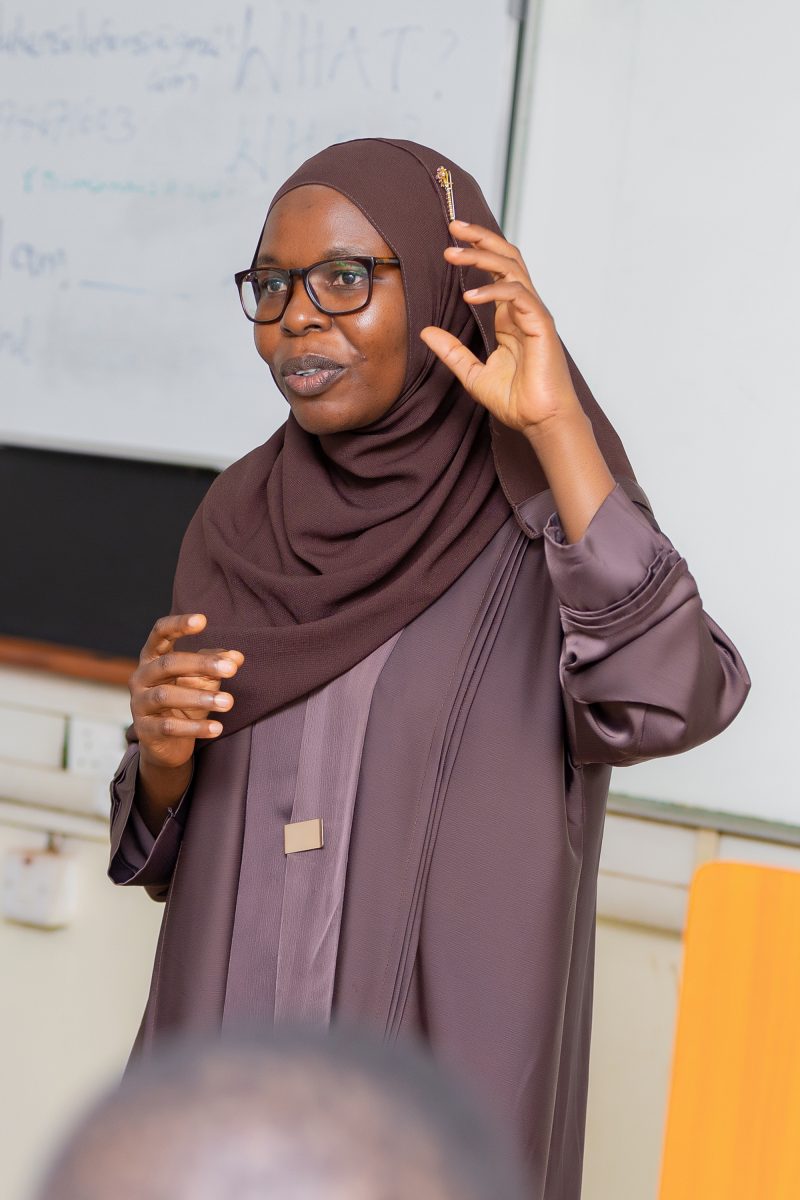
She assured participants they were in good hands and underscored the importance of the partnership between the Department of Journalism and Communication and the School of Public Health, describing it as a vital collaboration that brings together strategic communication and public health expertise. This dynamic, multidisciplinary approach, she noted, is essential to developing practical solutions that empower communities, strengthen health systems, and ultimately improve livelihoods.
The course offers a hands-on, multidisciplinary learning experience, with participants intended to explore key modules including Health Communication and Promotion, Risk Communication, Smart Advocacy, Community Mapping, Community Mobilisation and Empowerment, and Strategies for Community Engagement. The course combines theory with real-world application, and its assessment includes a field-based project and a final exam.
“You are our first cohort. We are seeing the fruits of our efforts in bringing this short course to life. It was born out of a joint initiative to develop a Master’s programme in Health Promotion and Communication,” said Dr. Christine Nalwadda, Head of the Department of Community Health and Behavioural Sciences. “We carried out extensive consultations with our different key stakeholders during the process and discovered a real need for such a course. It was the stakeholders who even named it; this course name didn’t come from us.”
For Kisaakye, by the end of the course in July, she hopes to have sharpened her skills in health promotion and strategic communication, particularly in crafting targeted messages that help individuals and communities effectively respond to threats such as antimicrobial resistance. She also aims to gain practical experience in designing, implementing, and evaluating community health initiatives that can strengthen her advocacy and drive lasting impact.
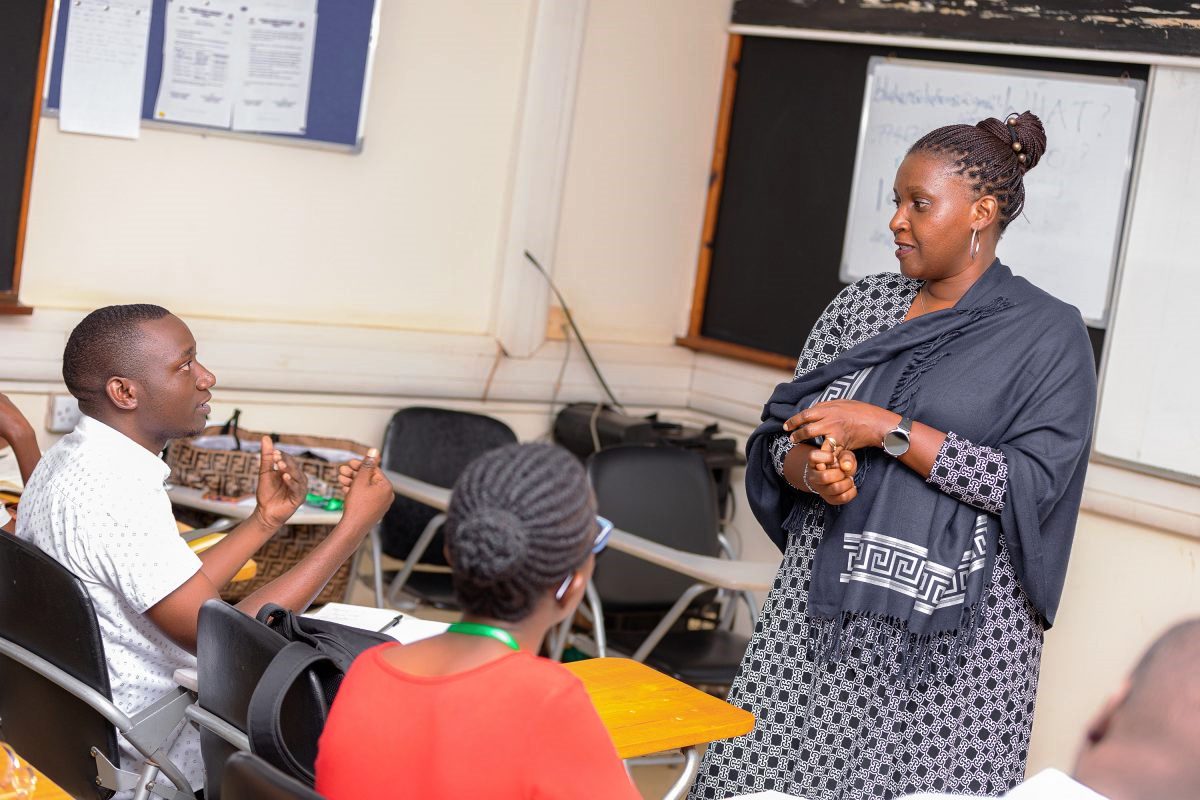
Trending
-

 Education5 days ago
Education5 days agoAdmission List to Bachelor of Education External (BED) 2025/26 -Private Sponsorship
-

 General1 week ago
General1 week agoUndergraduate Admission List Self Sponsorship Scheme 2025/2026
-

 General2 weeks ago
General2 weeks agoMature Age Scheme Exam Results for 2025/2026
-
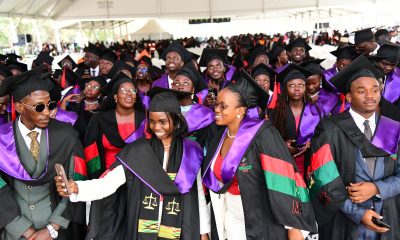
 General6 days ago
General6 days agoAdmission Lists for – Bachelor of Laws 2025-26
-
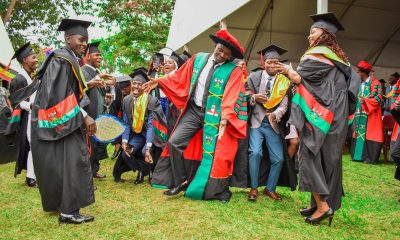
 General6 days ago
General6 days agoDiploma/Degree Holders Scheme – Self Sponsorship Admission Lists 2025/26
